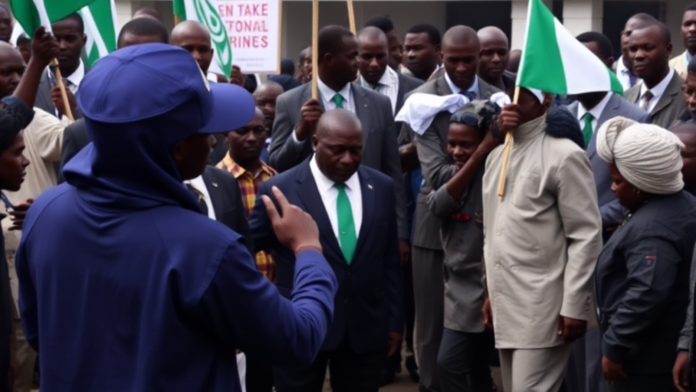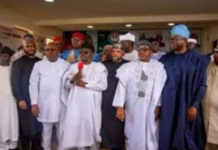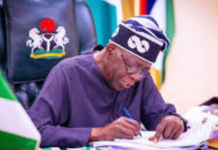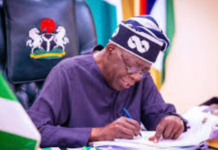Nigeria, Africa’s most populous country, has a complex political landscape that has evolved significantly since independence in 1960. The transition to a democratic government was an essential milestone, but one of the primary challenges remains establishing a robust, effective multi-party system. While Nigeria operates as a multi-party democracy, the functionality and quality of political party structures in the country remain a subject of debate. Is Nigeria truly ready to embrace a multi-party democracy that fosters representation, competition, and accountability?
Historical Context and Evolution of Political Parties in Nigeria
Nigeria’s journey toward democracy has been tumultuous, with political power fluctuating between democratic and military regimes. Early political parties, like the National Council of Nigeria and the Cameroons (NCNC) and the Northern People’s Congress (NPC), reflected regional and ethnic interests. This foundation set the tone for Nigeria’s political structure, often driven by regionalism rather than ideology.
Following decades of military rule, the return to democratic governance in 1999 ushered in a new phase in the development of political parties. The emergence of the People’s Democratic Party (PDP) as the dominant party for nearly two decades and the eventual rise of the All Progressives Congress (APC) in 2015 as a competitive opposition demonstrated a power shift. Yet, despite the existence of over 90 registered political parties at one point, the political environment remains largely two-party dominant, with PDP and APC controlling the majority of political influence.
Challenges in Nigeria’s Multi-Party System
1.Ethno-Regional Influence
Many political parties in Nigeria lack clear ideological grounding, often relying on regional, ethnic, and religious affiliations. This leads to a form of “clientelism,” where political support is based on ethnic loyalty rather than policy preference or competence. Consequently, the proliferation of political parties often reinforces existing divisions rather than promoting inclusive national unity.
2.Lack of Internal Democracy
Nigerian political parties have been criticized for lacking internal democracy, with many operating under the influence of powerful party elites. This practice stifles dissent, discourages transparency, and limits young and qualified candidates from competing for positions within the party. Party primaries are often marred by irregularities, with allegations of vote-buying and imposition of candidates by influential “godfathers.”
3.Financial Constraints and Funding Issues
Running a political party in Nigeria is costly, with a significant reliance on personal wealth or support from wealthy patrons. Campaign financing is largely unregulated, leading to an uneven playing field. This financial dependence discourages genuine multi-party competition, as smaller parties struggle to gain traction against better-funded rivals.
4.Policy-Based Parties vs. Personality-Centered Politics
Many Nigerian political parties are organized around influential personalities rather than solid ideological frameworks. As a result, party defections are frequent, especially when personal ambitions are unmet. This lack of ideological consistency undermines party loyalty, making it challenging to distinguish between parties based on policy proposals or governance style.
5.Electoral System Limitations
Nigeria’s “first-past-the-post” electoral system tends to favor larger parties, making it difficult for smaller parties to gain representation. In a country as diverse as Nigeria, a proportional representation system might offer a more balanced representation for various groups. However, the absence of such a system reinforces the dominance of major parties, leaving little room for the emergence of a vibrant multi-party democracy.
The Way Forward: Strengthening Nigeria’s Multi-Party Democracy
1.Institutional Reforms for Greater Accountability
Strengthening institutions such as the Independent National Electoral Commission (INEC) and improving the electoral process are essential steps toward promoting fair competition. By instituting transparent processes and enforcing strict adherence to campaign finance regulations, Nigeria can ensure a level playing field for all parties.
2.Enhancing Internal Party Democracy
Encouraging transparent party primaries and limiting the influence of powerful elites within parties are necessary to strengthen internal democracy. In addition, offering legal frameworks to regulate party operations can help enforce accountability and reduce political “godfatherism.”
3.Ideological Development and Policy-Based Politics
For true multi-party democracy, political parties must develop distinct ideologies and policy positions that align with the needs of the Nigerian populace. Shifting the focus from personalities to policies will allow citizens to make more informed choices based on issues rather than allegiances.
4.Adopting a Proportional Representation System
Considering a proportional representation system could help provide smaller parties with a platform in the legislative arena. While such a transition requires comprehensive legislative changes, it could lead to more inclusive representation and a healthier multi-party system.
5.Political Education and Civic Engagement
A robust democracy depends on an informed electorate. Increasing political awareness through education campaigns and civic engagement can help citizens understand the importance of party ideology, thereby reducing the appeal of ethno-regional politics.
Are We Ready for True Multi-Party Democracy?
Nigeria has made strides toward achieving a functional multi-party system. However, the current structure favors larger, well-funded parties and lacks the transparency and inclusiveness required to ensure equal representation across party lines. Achieving true multi-party democracy is an ongoing process, requiring the commitment of both political elites and citizens.
Ultimately, Nigeria’s readiness for a multi-party democracy depends on the willingness of stakeholders to enact and abide by reforms that promote inclusivity, transparency, and ideology-based politics. By addressing these systemic issues, Nigeria can gradually foster a political environment where democracy is genuinely representative, competitive, and capable of fulfilling the needs of all Nigerians.




















